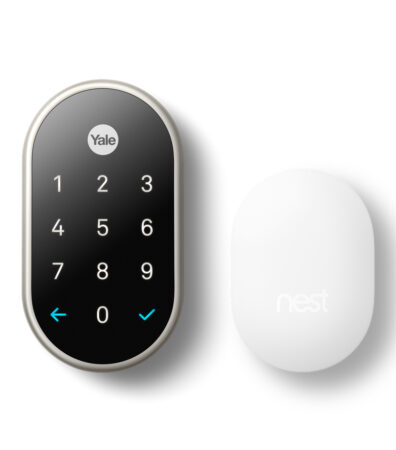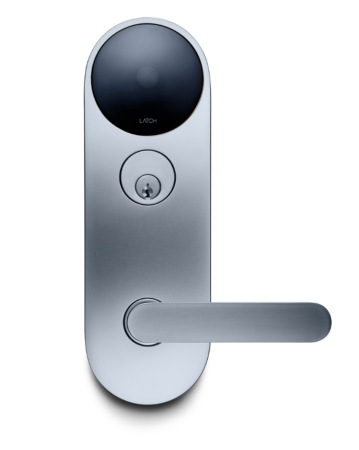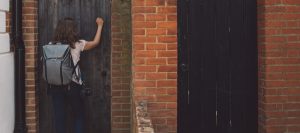Imagine this: You’ve just arrived in some exotic new city for vacation. You’re ready to sight-see or relax, and all you want to do is drop your things off at your Airbnb.
But when you try to get in to your rental, you can’t. Maybe the key doesn’t work, or the lockbox won’t open. Maybe the lockbox is missing altogether. Who knows. The only thing that really matters is that you’re standing outside a strange building in a strange city. It’s an inauspicious start to what was supposed to be a fun getaway.
This scenario, however, is exactly the kind of thing that a number of industry insiders believe technology can help fix. Specifically, in conversations with Inman they pointed to smart locks, a still-emerging technology that gives property owners data on how their rentals are being used, as a way to eliminate many of the shortcomings of traditional keyed locks.

Angel Piontek
“I remember looking at vacation homes and thinking, ‘how many people have access? How many have maybe made a copy of the key?’” Angel Piontek, a broker and marketing vice president at Coldwell Banker Elite, recently told Inman. “Having a smart lock kind of eliminates that concern.”
Piontek — who earlier this year at Inman Connect in New York argued smart home technology will soon be the norm rather than the exception — described vacation rentals as an especially “great niche for the smart lock companies.” That’s because they can provide enhanced levels of safety, security, and ease of use — or exactly the kinds of things that vacation rental owners need.
 Get off the stock market roller coaster and into real estate
How commercial real estate is a hedge against volatility READ MORE
Get off the stock market roller coaster and into real estate
How commercial real estate is a hedge against volatility READ MORE
“From my perspective, I think it’s a great idea,” she added.

The Nest x Yale smart lock. Credit: Nest
Piontek pointed to a number of different companies that produce smart locks. For example, Nest — which is owned by Google and best known for its smart thermostats — offers the Nest x Yale lock, which looks like a very basic calculator and is made in collaboration with smart lock manufacturer Yale.
The device retails for just over $200 and promises “secure, tamper-proof, key-free” entry, as well as integrations with the company’s app.
Ring, Amazon’s smart doorbell company, offers a similar product at a similar price, also in collaboration with Yale. Ring offers a handful of other locks as well via partnerships with manufacturers such as Schlage and Kwikset. The least expensive of Ring’s devices retails for around $140.

The Latch M, from Latch. Credit: Latch
A number of other startups have also emerged to offer smart locks and related software. Latch, for example, launched in 2016 and has since raised tens of millions of dollars in funding. The company offers a suite of smart locks, each of which is designed for a specific type of space, such as common areas at apartment buildings.
Though each smart lock from these various companies has its own unique features, for the most part they integrate with software and can be controlled remotely from a phone-based app.
Piontek, for example, said that she has a smart lock on her own house that is produced by August Home, yet another manufacturer. And she raved about its features.
“I can lock and unlock it from anywhere in the world,” Piontek said.

Brad Hintze
Brad Hintze, the senior director of product marketing at Control4, also praised the devices. Control4 makes home automation software that integrates with various different smart locks (among other devices), and Hintze noted the technology offers a unique advantage for vacation rentals because it can be used to “grant property managers, housekeepers, and other professionals access to the home as needed.”
His point is an important one; while smart locks certainly offer advantages for all sorts of properties, vacation rentals are uniquely accessed by a large group of people beyond actual guests. And in that context, a smart lock system means eliminating the hassle and security issues that arise from having multiple keys or lockboxes.
It’s not a surprise, then, that smart locks do appear to be catching on among vacation rental owners and managers. In an email, Alison Kwong — a spokesperson for Expedia-owned vacation listing site Vrbo — told Inman that many owners are already using “smart locks and other types of home automation and smart home technology.”
“These technologies are particularly useful for vacation rental owners and property managers who do not live near their vacation rental or for those who manage multiple properties,” Kwong added. “Smart lock technologies like Schlage, Nexia,Nexia and Ring make it easy for guests to access the property when they check-in while also keeping the property secure.”
While there is obviously enthusiasm out there for smart lock technology, Piontek did note that there are some special considerations when it comes to using it on a vacation rental. At her own home, for example, she chose a lock that lacks a keypad and instead relies on bluetooth to open.
At a vacation rental, however, Piontek recommended taking the opposite approach and opting for a device that guests can enter by punching in a code. That should make the process more seamless for guests. Piontek also said that most smart locks allow owners to customize entry codes, meaning each new guest uses a different string of numbers to get in.
“So when that reservation ends,” she added, “the code ends.”
Smart locks also raise some privacy issues when used for vacation rentals. For example, many are capable of recording and when and how often someone enters a property, then transmitting that data to an owner. Obviously, some travelers are not going to be thrilled at the thought of a property owner knowing exactly when they come and go from a rental.
Piontek described that particular privacy concern as one of the few downsides of using smart locks, and suggested it could be a particularly acute concern for travelers who aren’t already familiar with smart home technology.
Still, both she and others who spoke with Inman about the topic said that the pros when it comes to both convenience and security outweigh the cons.
Hintze, from Control4, also added that after property owners try smart locks, they may find themselves diving further into smart home technology.
“Once they experience the convenience of remote management,” he said, “vacation property rental owners, like many homeowners, quickly want to add other features like garage door openers, thermostats, and lights.”
How do you stay ahead in a changing market? Inman Connect Las Vegas — featuring 250+ experts from across the industry sharing insight and tactics to navigate threat and seize opportunity in tomorrow’s real estate market. Join more than 4,000 top producers, brokers and industry leaders to network and discover what’s next, July 23-26 at the Aria Resort. Hurry! Tickets are going fast, register today!
Thinking of bringing your team? There are special onsite perks and discounts when you buy tickets together. Contact us to find out more.
Source: click here














